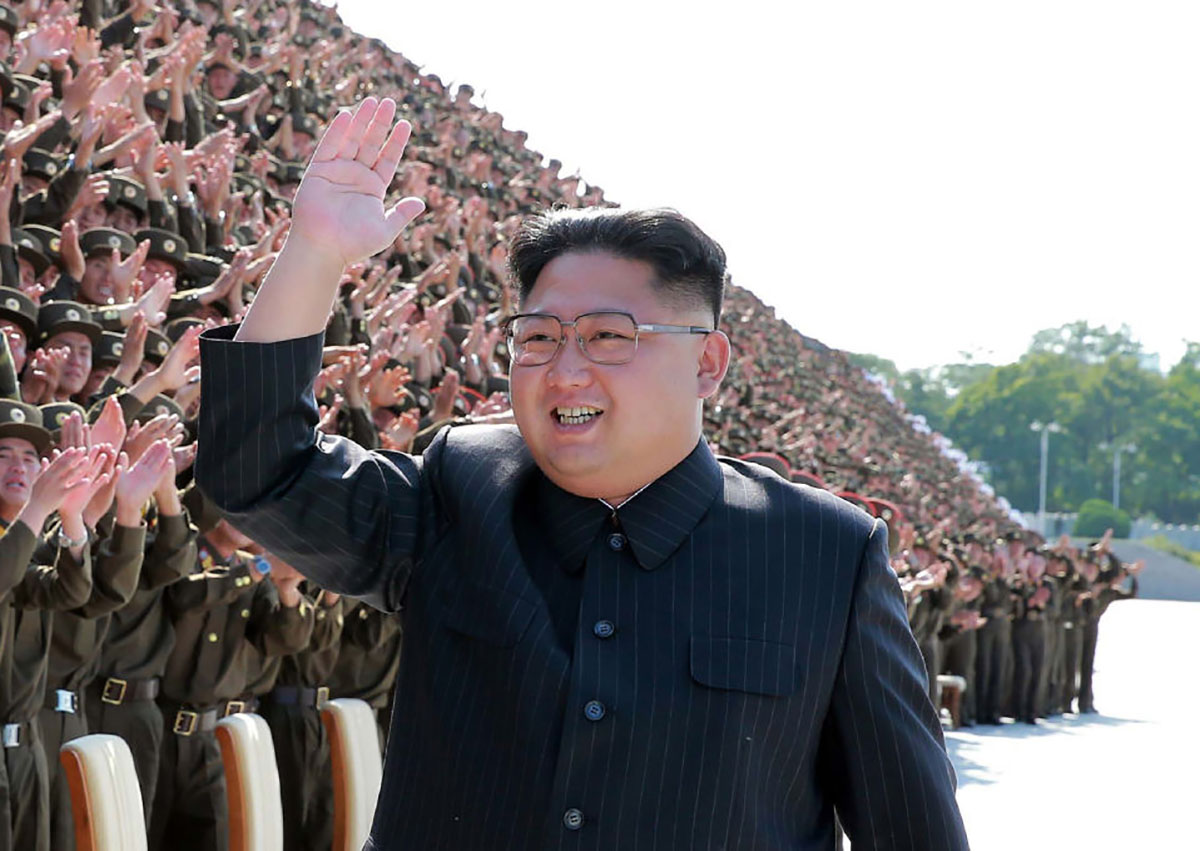The United Nations levelled another set of sanctions against North Korea on Monday, aimed at putting economic pressure on Kim Jong-Un’s regime.

The international community has put many sanctions on North Korea over the years but they’ve had little effect on the Hermit Kingdom’s ability to develop nuclear weapons.
So where is it getting the money? Mining, chemical weapons, and forced labour mostly.
But the first thing to understand is that North Korea is a very poor country.
“We’re looking at a very impoverished nation that has been essentially living on the edge and heavily reliant on foreign aid,” said Tina Park, the executive director of the Canadian Centre for the Responsibility to Protect and an expert in Korean affairs.
WATCH: North Korea on Tuesday rejected a U.N. Security Council resolution and said the U.S. would face the “greatest pain” it had ever experienced.

North Korea had a GDP per capita of about $1,342 in 2016, according to the Bank of Korea, which releases widely-used estimates on the North Korean economy annually. By comparison, Canada’s was $43,420 and the world average was about $16,100 according to the World Bank.
What little money North Korea does have goes right to the top, according to Park.
“Much of North Korea’s GDP goes to the military and the rest goes to its elites.”
Here’s where it gets that cash.
Mining
North Korea’s biggest industries are mining and manufacturing. The country’s top product is coal, and 92.5 per cent of all of its exports went to China in 2016.
However, in February, China stopped importing North Korean coal.
The North’s economy this year will “definitely” be impacted by China’s decision to ban all coal imports, Kim Suk-jin, a research fellow at the state-run Korea Institute of National Unification (KINU), told Reuters in late July.
“North Korea can bypass some sanctions but coal is critical for their economy and it is something that’s difficult to smuggle. Coal can be spotted easily when it’s being moved,” said Kim.
Chemical and other weapons
North Korea is known to have exported chemical weapons to terrorist organizations, largely in the Middle East. Reuters reported in late August that two shipments from North Korea were intercepted in the past six months. They were destined for the Syrian regime’s chemical weapons program.
“ISIS, Hezbollah, all these terror groups get their weapons from North Korea, believe it or not,” said Park.
CNN and other media outlets have also reported on North Korea’s arms trade.
WATCH: South Korea said on Wednesday it conducted its first live-fire drill for an advanced air-launched cruise missile it says will strengthen its preemptive strike capability against North Korea

Forced labour abroad
North Korea has sent an estimated 50,000 workers abroad, according to a 2015 report from the UN. These people are mostly employed in Russia and China, though they’re also in Malaysia, Mongolia, a number of Middle Eastern countries and even Poland.
They do a variety of jobs, from construction and logging work to waitressing at one of the country’s numerous North Korean theme restaurants abroad.
Yes, North Korea operates a restaurant chain.
“The people who go abroad would normally come from a very particular caste: very educated, very pro-Party people who are trained and who would be loyal to the Party during their exposure abroad,” said Park.
“I, for instance, ran into a waitress in Moscow when I was visiting at a North Korean restaurant who spoke four languages, was very beautiful, very bright. So you’re looking at a very particular type of people who the regime sends abroad for earning currency.”
Unfortunately for the workers, they have to give the North Korean regime most of their wages. And according to reports from the UN and other human rights agencies, they often face human rights abuses while working abroad, such as working up to 20 hours per day and having hardly any contact with their host country.
Sanctions
Park thinks it’s “naive” to assume that the latest UN sanctions will have any effect on North Korea’s behaviour.
“We’re looking at a regime that has essentially survived over a dozen UN Security Council resolutions imposing sanctions in the past decade, all of which have had very little effect in terms of constraining North Korea or stopping them from developing nuclear weapons.”
WATCH: The U.S.-Japan security alliance is of utmost priority amid tension with North Korea says U.S. ambassador to Japan William Hagerty

With files from Reuters


Comments